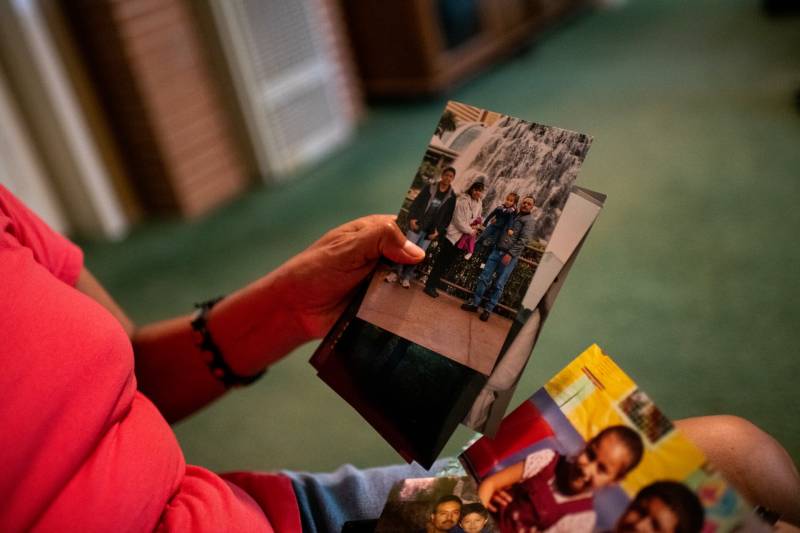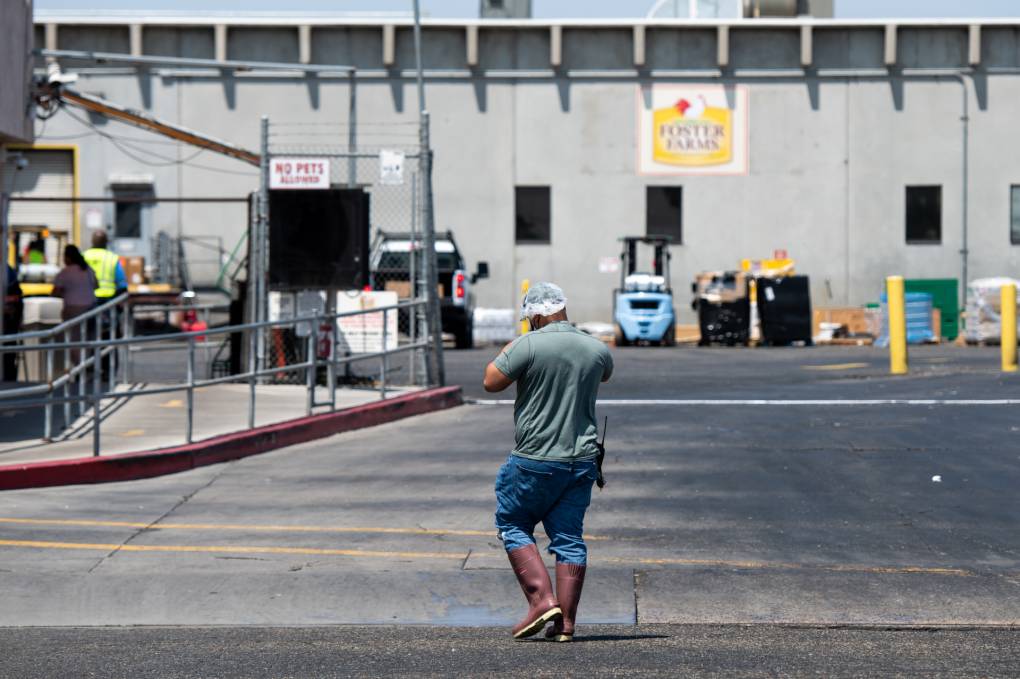The California Report Magazine rebroadcast this story this week after it won a national Edward R. Murrow award, among the most prestigious honors in journalism. KQED’s investigation of COVID-19 outbreaks at Foster Farms, originally broadcast last fall, won best news documentary in the large market radio category. Here’s a full list of the 2022 winners.
In 2020, California’s Foster Farms became the site of one of the nation’s deadliest COVID-19 outbreaks at a meat or poultry plant. The California Report’s Central Valley reporter, Alex Hall, spent a year and a half talking to spouses and family members of workers who spent decades at the company’s chicken-processing plants. She found that hundreds of Foster Farms workers tested positive for the virus in 2020. Sixteen people died, and at least 20 others were hospitalized.
Hall’s investigation showed that as plants stayed open to maintain the food supply, and workers got sick from COVID-19, or even died, Foster Farms didn’t always give a complete picture of the problem to health officials, state regulators or their own employees. She introduced listeners to families who lost loved ones who worked at Foster Farms — families who are grieving, struggling financially and trying to make sense of what happened.

